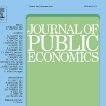
Jeremy Lebow
@jeremy_lebow
Followers
473
Following
217
Media
4
Statuses
97
Economist at the World Bank with a focus on development, migration, and labor. DC ➡ CDMX ➡ Chennai ➡ Durham @DukeEcon ➡ DC | Views are my own
Washington, DC
Joined August 2019
Excited to see this finally out! The message is simple - as Venezuelans flooded across Latin America, migrant sentiment worsened, but not more so in places with more migrants. Xenofobia is driven by national narratives more than any real effects of social or economic exposure.
Just published in @JPubEcon: "Migrant exposure and anti-migrant sentiment: The case of the Venezuelan exodus" By @jeremy_lebow, @JMorenoMedina, @salma_mousa_, @HoracioC_
https://t.co/tlqlRFhfV2
2
41
199
Exitosa primera jornada de los #SpringMeetings. Hoy hemos lanzado la Alianza Global de Habilidades entre España y América Latina. El objetivo del @WorldBank es lograr 10 a lo largo de 2024. Os cuento más sobre el nuestro 🧵
3
25
39
The Duke Econ Graduate Mentorship Program (GMP) is back! The program is targeted to students from backgrounds under-represented in economics and considering a Ph.D. in economics: https://t.co/hI6KBv5gG6 1/11
2
77
201
Actively recruiting for 5 Research Associate and Research Assistant positions on projects I'm involved in at @CERPakistan - please share and apply!
19
137
195
🌟Publication Alert🌟 I am very happy to share my new paper: The long-term effects of the 1923 mass #Refugee inflow on social #cohesion in #Greece published at @WorldDevJournal. https://t.co/494FkiNmHt
2
9
44
Featured Paper: "Officer-Involved: The Media Language of Police Killings." Authors: @JMorenoMedina (@UTSABusiness), @AurelieOuss (@Penn), @PatBayerNC (@DukeU) @bocar_a (@DukeU) Full Paper: https://t.co/Ut5LADZRr2
1
6
28
Prison systems have a long and troubled history. We know that punishment is not a solution to conflicts and harm, on the contrary: the deprivation of liberty and other rights is the easiest way to avoid seeking solutions to socio-economic problems.⬇️
1
3
9
Summing up our job market blog series 2022: we received 35 submissions and published 17, here's the full list:
0
5
9
I've heard some people on Twitter aren't happy with the basic left vs right map for Latin America and want more nuance. So here's a first draft with more nuance. If you don't like it, don't complain. Make a better one.
958
11K
52K
1,606 migrants per day walked through Panama's until-recently impassable Darién Gap jungles in September. An absolutely unthinkable number. 1,280 were citizens of #Venezuela. Source: https://t.co/X3wIs0E275
7
171
224
The previous US Administration pursued a policy of mass refugee exclusion. What are the lasting economic and fiscal effects? My estimates of this impact just published in @OxRepJournal —> https://t.co/m4ILk35xtL Preliminary but ungated: https://t.co/hvw4POW7oY Summary thread ☞
iza.org
International migrants who seek protection also participate in the economy. Thus the policy of the United States to drastically reduce refugee and asy...
8
56
83
After presenting at the SITE Migration conference, en route to Angel Island in SF with organizers @melaniemorten, Ran Abramitzky, @seperez84, and fellow attendees. Learned something about Asian exclusion in US immigration history, got our steps in, and had a great day!
1
1
20
A policymaker who seeks to affect families' migration behavior needs to understand what they use migration for. They often use it as a crucial form of insurance against food crises and natural disasters. Short thread on two just-released papers —>
2
15
52
7/7 There are many ways in which immigration affects an economy. I don’t think we should focus exclusively on short-term wage effects for workers in the most directly affected industries. However, these are non-trivial effects, important to understand to inform the right policies
0
0
0
6/7 They are also more negative in departments where it is harder to form a business, indicating that poor capital mobility may partially explain why we see negative wage effects here and not in many upper-income settings
1
0
1
5/7 I narrow in on negative wage effects in the middle of existing estimates – moderate, economically important, but not massive. They are much larger for less educated, low-wage, and informal sector workers, consistent with the emerging literature on migration in LMICs
1
0
0
4/7 Excluding them introduces OVB since they also affect local labor markets. Likewise, if you restrict migrants to those who arrived in the past year, you ignore the effect of those who arrived in the years before. In this case, this inflates the wage effect by a factor of 7!
1
0
0
3/7 For ex, around 20% are return migrants, born in Colombia. Return migrants are different in many ways, and it is tempting to exclude them from analysis. However, their location in Colombia is highly correlated with that of Venezuelan-born migrants (a “collinear shock”)
1
0
1
2/7 There is conflicting evidence regarding the short-term effect of Venezuelan migration on Colombian wages. I show that this is mostly driven by who is included as a “migrant” on the RHS (in the classic setup with labor outcomes regressed on the migrant share of the population)
1
0
0













